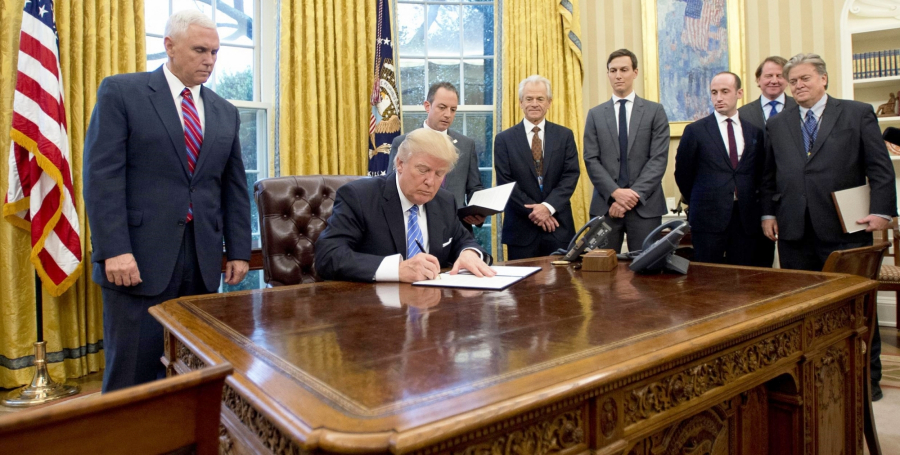Franklin D. Roosevelt is often cited as the reason why journalists and news outlets inevitably focus on the accomplishments of a US president in their first 100 days in office. Roosevelt (who rose to the office during the Great Depression) accomplished more in his first 100 days than any President before or since, signing an enormous number of laws and executive orders in order to establish the New Deal and ameliorate the country's economic downturn. Studies have found that, when a president takes office, the first 100 days are the most productive time for legislative action. As David Remnick writes in The New Yorker, "The hundred-day marker is never an entirely reliable indicator of a four-year term, but it's worth remembering that Franklin Roosevelt and Barack Obama were among those who came to office at a moment of national crisis and had the discipline, the preparation, and the rigor to set an entirely new course." Remnick went on to say, however, "Impulsive, egocentric, and mendacious, Trump has, in the same span, set fire to the integrity of his office."

Trump's first 100 days have been marked by a series of attempts to fulfill on campaign promises that went on to implode. His "Muslim Ban", though pushed through twice via executive order, has continued to be blocked by the courts. His and the Republican Party's attempt to "repeal and replace" the Affordable Care Act was struck down in the House of Representatives. His administration does have the success of appointing Neil Gorsuch to the Supreme Court, however the appointment soured already dark inter-party relations, with many Democrats stating that the seat was stolen from Obama's nominee Merrick Garland.

Paradoxically, though Trump's policies systematically disenfranchise his core group of supporters, his support amongst those supporters remains strong. Only two percent of those who cast their ballot for Trump in November now say that they regret their choice. Trump's initiatives largely hinge on undoing the policies of the Obama administration. He has revoked executive orders that protected LGBT government workers from discrimination, as well as order that prohibited the sale of firearms to the mentally ill. Vice President Mike Pence broke a Senate tie in favor of allowing states to defund Planned Parenthood clinics. Trump's budget proposals threaten the funding of rental-assistance programs, after-school programs, legal assistance for the poor, the Community Development Block Grant program, as well as the National Endowment for the Arts and the National Endowment for the Humanities. These are the very same programs that most benefit Trump's voters.

A significant contributing factor to Trump's low approval ratings is his use of Twitter. Trump tweets approximately once every six hours. Since taking office, he has tweeted 452 false or misleading claims. His deep mistrust of expertise (namely military strategists, scientists, diplomats, university professors, and intelligence officers) has culminated in a cabinet filled with individuals lacking the basic knowledge required for their positions. However, Trump's approval ratings have experienced a small uptick following his military intervention in Syria, the dropping of the so-called "mother of all bombs" in Afghanistan, and his military posturing with North Korea. Conflict with and resistance to Trump persists both domestically and internationally, indicating that there will be no lack of turbulence for his administration in the coming weeks and months.
- http://www.businessinsider.com/trump-first-100-days-how-compare-obama-bush-clinton-2017-4/#the-lowest-initial-unemployment-claims-6
- https://www.nytimes.com/2017/04/29/opinion/sunday/lessons-from-100-days-of-president-trump.html?_r=0
- http://www.newyorker.com/magazine/2017/05/01/a-hundred-days-of-trump










